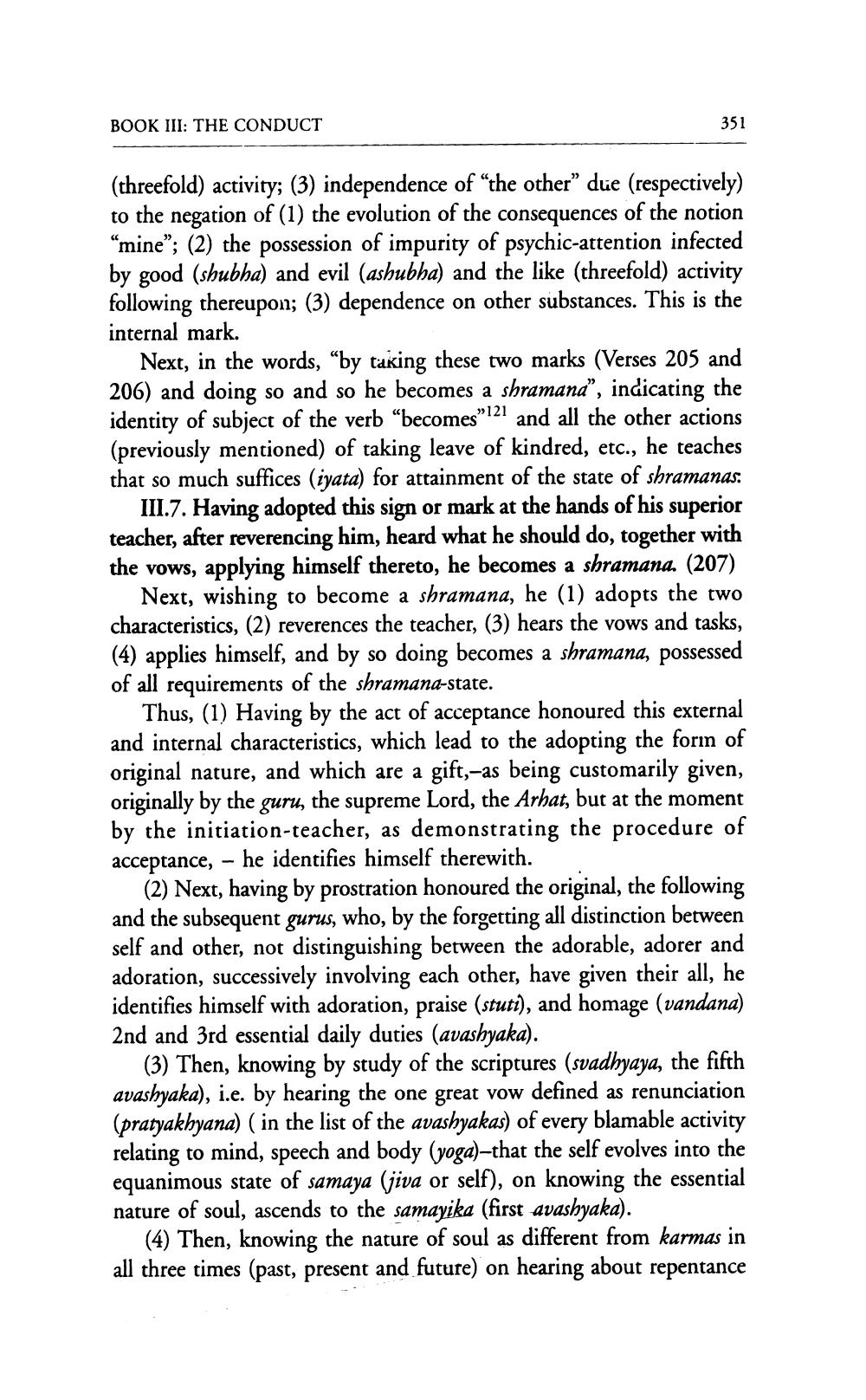________________
BOOK III: THE CONDUCT
351
(threefold) activity; (3) independence of “the other” due (respectively) to the negation of (1) the evolution of the consequences of the notion “mine”; (2) the possession of impurity of psychic-attention infected by good (shubha) and evil (ashubha) and the like (threefold) activity following thereupon; (3) dependence on other substances. This is the internal mark.
Next, in the words, "by taking these two marks (Verses 205 and 206) and doing so and so he becomes a shramana", indicating the identity of subject of the verb “becomes”121 and all the other actions (previously mentioned) of taking leave of kindred, etc., he teaches that so much suffices (iyata) for attainment of the state of shramanas.
III.7. Having adopted this sign or mark at the hands of his superior teacher, after reverencing him, heard what he should do, together with the vows, applying himself thereto, he becomes a shramana. (207)
Next, wishing to become a shramana, he (1) adopts the two characteristics, (2) reverences the teacher, (3) hears the vows and tasks, (4) applies himself, and by so doing becomes a shramana, possessed of all requirements of the shramana-state.
Thus, (1) Having by the act of acceptance honoured this external and internal characteristics, which lead to the adopting the forin of original nature, and which are a gift,-as being customarily given, originally by the guru, the supreme Lord, the Arhat, but at the moment by the initiation-teacher, as demonstrating the procedure of acceptance, - he identifies himself therewith.
(2) Next, having by prostration honoured the original, the following and the subsequent gurus, who, by the forgetting all distinction between self and other, not distinguishing between the adorable, adorer and adoration, successively involving each other, have given their all, he identifies himself with adoration, praise (stuti), and homage (vandana) 2nd and 3rd essential daily duties (avashyaka).
(3) Then, knowing by study of the scriptures (svadhyaya, the fifth avashyaka), i.e. by hearing the one great vow defined as renunciation (pratyakhyana) ( in the list of the avashyakas) of every blamable activity relating to mind, speech and body (yoga)—that the self evolves into the equanimous state of samaya (jiva or self), on knowing the essential nature of soul, ascends to the samayika (first avashyaka).
(4) Then, knowing the nature of soul as different from karmas in all three times (past, present and future) on hearing about repentance




